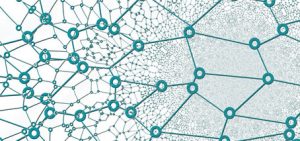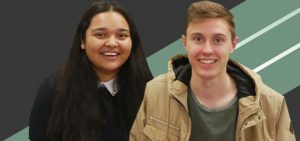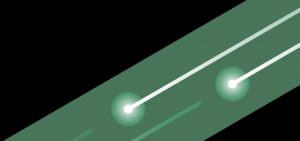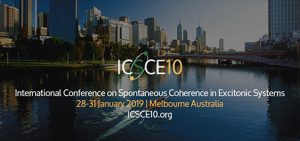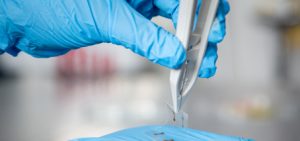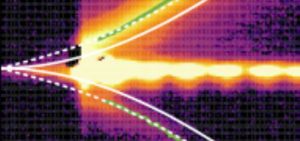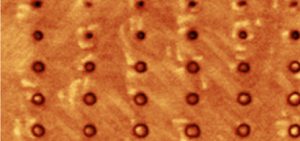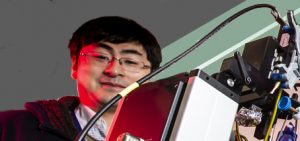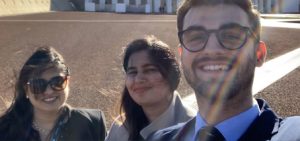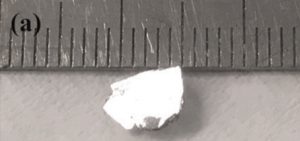FLEET News
Two significant, long-term partnerships will progress FLEET’s equity goals as well as supporting change in the Australian STEM community. FLEET was pleased to be a sponsor for this year’s annual MAGIC mentoring workshop, which provides mentoring and skills development for early-career female and gender-diverse researchers in maths and physical science. FLEET’s three-year partnership with Mentoring and Guidance in Careers (MAGIC) …
UNSW’s Taste of Research program provides undergraduate Physics students the opportunity to undertake a small research project with one of the research groups in the School. Cecilia Bloise asked students Seamus Lilley and Krittika Kumar who worked with FLEET PhD Yonatan Ashlea Alava, to describe the experience for our research blog… What are you working on Seamus? “I worked …
First research workshop organised by early-career researchers (ECRs) and students Cross-node publications increased by 18% (from 7 to 11 ) Four FLEET-wide, live-streamed seminars run in 2019 (target 10) New $50,000 grant created for collaborative projects with partner MacDiarmid Institute New $20,000 funding pool established for ECR collaborative grants with partner organisations Christmas in July social event, Melbourne nodes 30 …
In January 2020 FLEET brought the 10th International Conference on Spontaneous Coherence in Excitonic Systems (ICSCE10) to Australia for the first time. Continuing this 15-year tradition from the global scientific community interested in various quantum phenomena, ICSCE10 was hosted at the Arts Centre Melbourne amidst smoke storms resulting from what was one of the worst bushfire seasons in Australia’s history. …
We lost a dear friend in 2019, with the passing of Shaun Johnstone. We are deeply saddened for the loss of this quietly brilliant, lovely young man, and for the grief of his wife, Melissa, family Phil, Judy, Grace and Mark, and his wide circle of friends in the physics community and beyond. Shaun was a brilliant physicist, with outstanding …
“Climate change has arrived, and without significant action greater impacts on Australia are inevitable.” From this week’s open letter on bushfires, signed by 80 ARC Laureates, including FLEET Director Prof Michael Fuhrer (Monash University School of Physics and Astronomy) read the letter | read coverage
Researchers have developed an ultra-thin and ultra-flexible electronic material, able to be printed and rolled out like newspaper, for the touchscreens of the future. The touch-responsive technology is 100 times thinner than existing touchscreen materials and so pliable it can be rolled up like a tube. To create the new conductive sheet, an RMIT University-led team used a thin film …
Australian research collaboration makes first detection of ‘ghost particles’ from Bose-Einstein condensates made of light and matter. The ANU/Monash University collaboration study: Observed ‘quantum depletion’ for the first time in a non-equilibrium condensate Discovered that ‘light-like’ condensates don’t behave as we would expect Observed ‘ghost’ excitations arising from quantum depletion for the first time. Quantum depletion observed for the first …
In 2019, FLEET cemented its relationship with Monash Tech School continuing to be involved as the school ramped up its activity. FLEET’s fruitful partnership with Monash Tech School features lab tours that provide hands-on science experiences for participating secondary students. From May to December, FLEET provided lab tours and activities on an almost weekly basis for Year 8 students from …
Improved polarisation retention in ferroelectric a significant step forward for domain-wall nanoelectronics in data storage Engineering defects in ferroelectrics provides key to improved polarisation stability Researchers achieved stability greater than one year (a 2000% improvement) A UNSW study published today in Nature Communications presents an exciting step towards domain-wall nanoelectronics: a novel form of future electronics based on nano-scale conduction …
Superfluids were first discovered as a special quantum state of liquid helium, later dubbed as “Superfluid helium” once chilled past -269 degree celsius, starts to manifest properties that do not occur in other fluids. Penetration through a solid with nano-pores is one of the three fascinating macroscopic phenomena that are well known in superfluids such as liquid helium. It is …
FLEET continues to build links with other science organisations within Australia to further the reach of science, advance equity issues and develop future leaders, for example: Sponsoring childcare at the annual Science Meets Parliament, with Science and Technology Australia (STA) Running pitch training with two other ARC Centres of Excellence Co-sponsoring Physics in the Pub with three ARC Centres of …
Self-forming quantum liquids on a silicon chip could revolutionise our understanding of turbulence and enable new technologies for precision navigation. Researchers at The University of Queensland have developed the first methods to bring together quantum liquids with modern silicon-chip based technology, allowing the observations of nanoscale quantum turbulence that mirrors the behaviour of a cyclone. Professor Warwick Bowen, from UQ’s …
FLEET had a team of three researchers at Science meets Parliament (SMP) in November, talking to parliamentarians and other scientists from around the country, and perfecting the art of pitching to politicians. FLEET’s gun team were: Hareem Khan (RMIT), Oliver Stockdale (UQ) and Semonti Bhattacharyya (Monash). Science Meets Parliament is an annual meeting of Australia’s policy-makers with leading and emerging …
Since their discovery in 2006, topological insulators have been widely discussed as a promising avenue for energy efficient electronics. Their unique high mobility edge states have a form of “quantum armour” that protects them from electron-scattering events that would otherwise produce waste heat. Unfortunately, practical applications of topological insulators have been severely limited by the small electronic bandgaps in most …

